The DJI Mavic Air 2 is now the best drone you can buy – here's why
Meet the best drone for most people
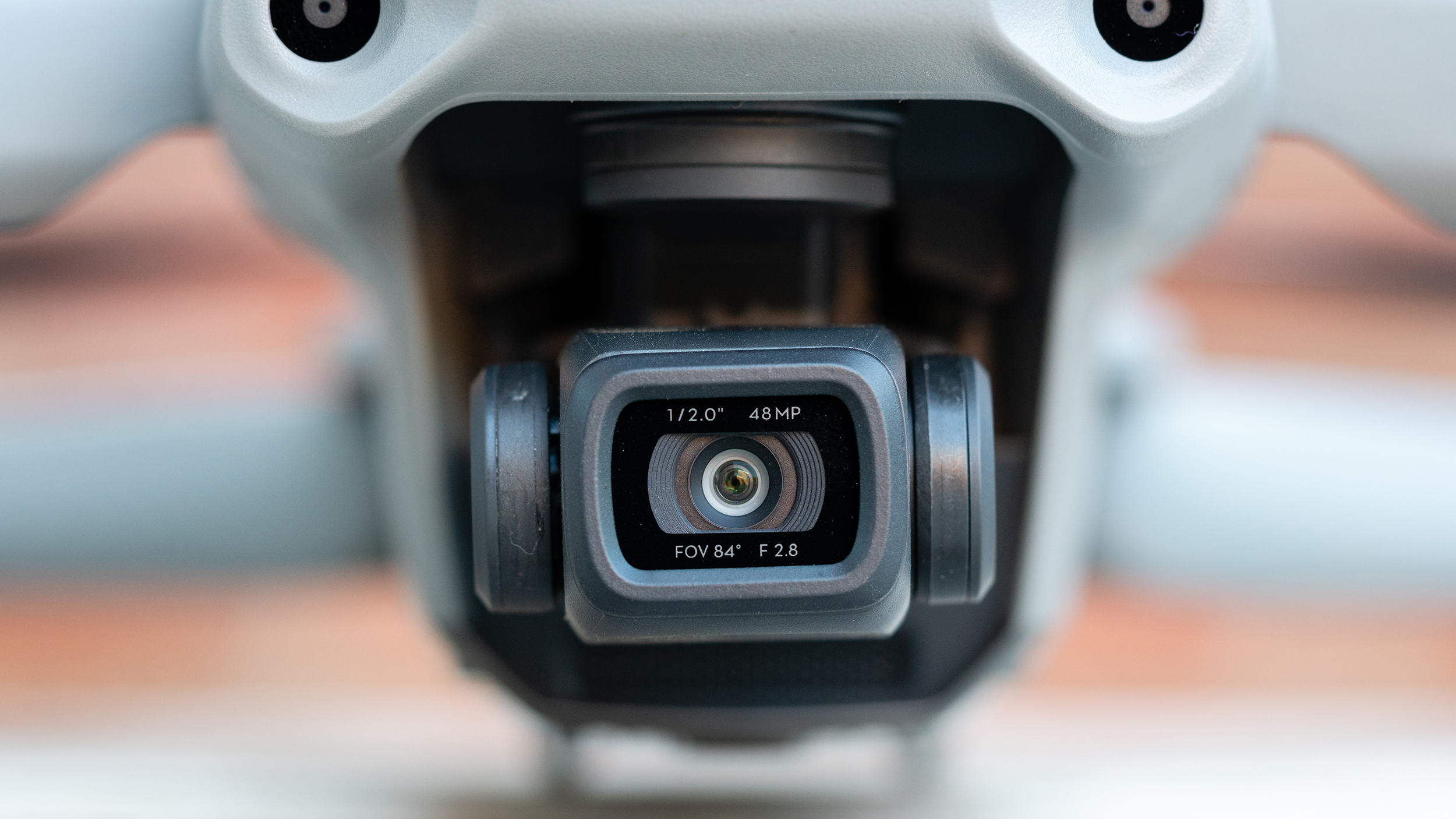
The DJI Mavic Air 2 has now officially launched – and having tested the mid-range drone for the past week in secret for our in-depth review, we've concluded that it's the best drone you can buy right now.
There wasn't a huge amount we didn't already know about the Mavic Air 2's specs, following a series of pre-launch leaks, but DJI has now officially announced pricing and availability. You can pre-order the Mavic Air 2 now for $799 / £769 / AU$1,499, with shipping expected to begin in mid-May.
A 'Fly More' bundle that includes the Air 2 plus a shoulder bag, ND filters, charging hub and three batteries is also available to pre-order, for $999 / £949 / AU$1899.
- These are the best DJI drones you can buy right now
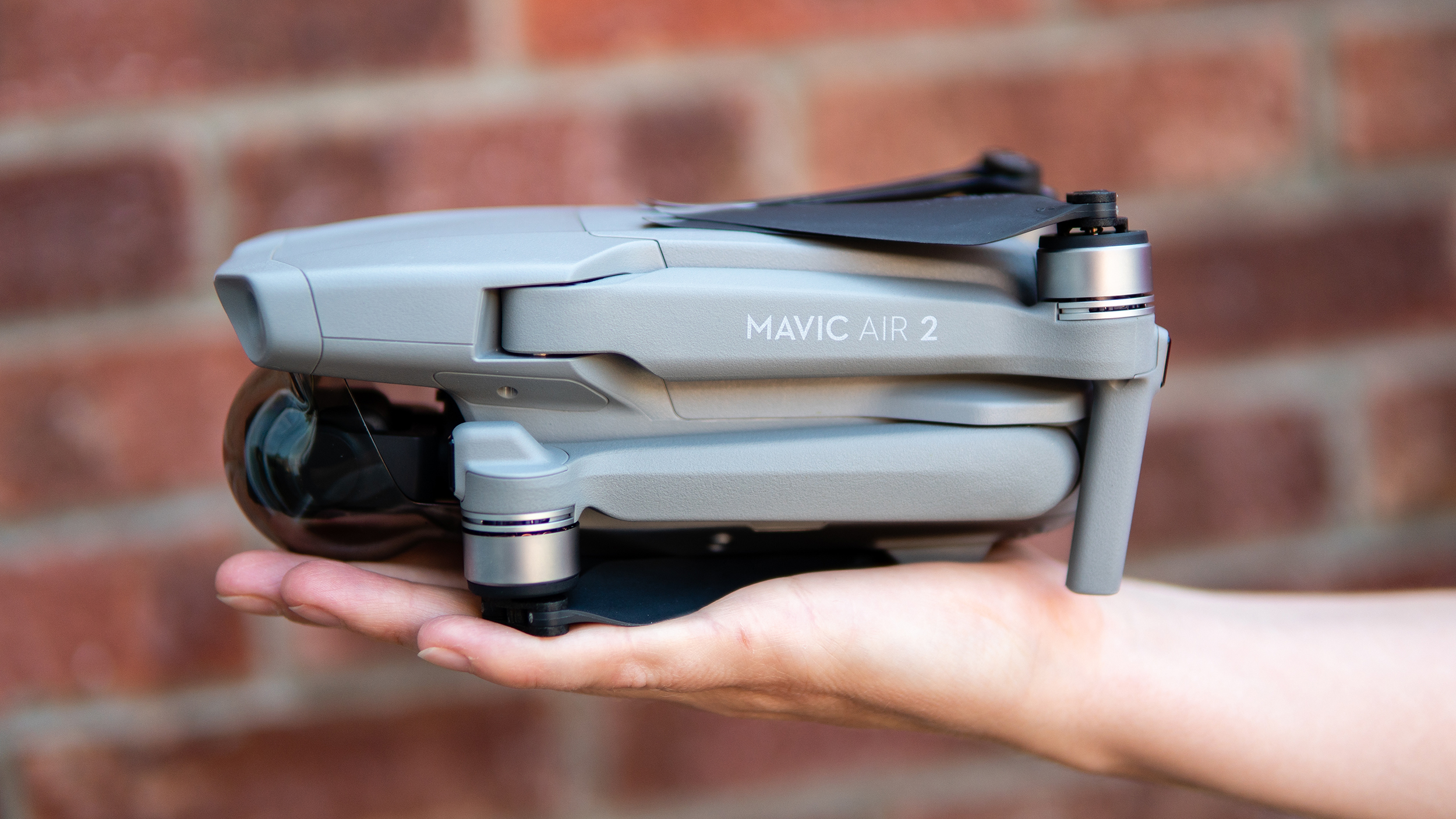
So why is it the best drone you can buy right now? In our DJI Mavic Air 2 review we found that it achieves the perfect balance between size and features, sitting neatly in between the entry-level DJI Mavic Mini and the pro-friendly DJI Mavic 2 Pro, and also brings some impressive firsts to the Mavic series.
- Read our in-depth DJI Mavic Air 2 review
- Why the DJI Mavic Air 2 launching during lockdown isn't as silly as it sounds
- These are the best drones you can buy right now
Unlike the pricier Mavic 2 Pro and Mavic 2 Zoom, the Mavic Air 2 can shoot 4K video at 60fps and with a 120Mbps bit-rate. Commenting on the sample footage we managed to shoot within lockdown restrictions in our review we said: "As you’d hope, image quality is massively improved compared to the previous Mavic Air model. This is, in part thanks to the new 12MP 1/2-inch Quad Bayer sensor. This provides significantly cleaner images at all ISO levels."
Two other big changes from the original Mavic Air are the drone's design and its controller, both of which are largely a success. While the Mavic Air 2 is bigger than its predecessor, it's effectively a mini version of the Mavic 2 series, and folds down into a bundle that still weighs only 570g.
This weight does mean that you'll need to register the drone if you live in regions like the US or UK (which will cost you, respectively, $5 every three years or £9 annually), which is something you don't need to do with the smaller DJI Mavic Mini. But the Mavic Air 2 is also way more stable than its smaller sibling in breezy conditions, and packs in a huge list of features that make it both easy to fly and DJI's safest drone yet.
Get daily insight, inspiration and deals in your inbox
Sign up for breaking news, reviews, opinion, top tech deals, and more.
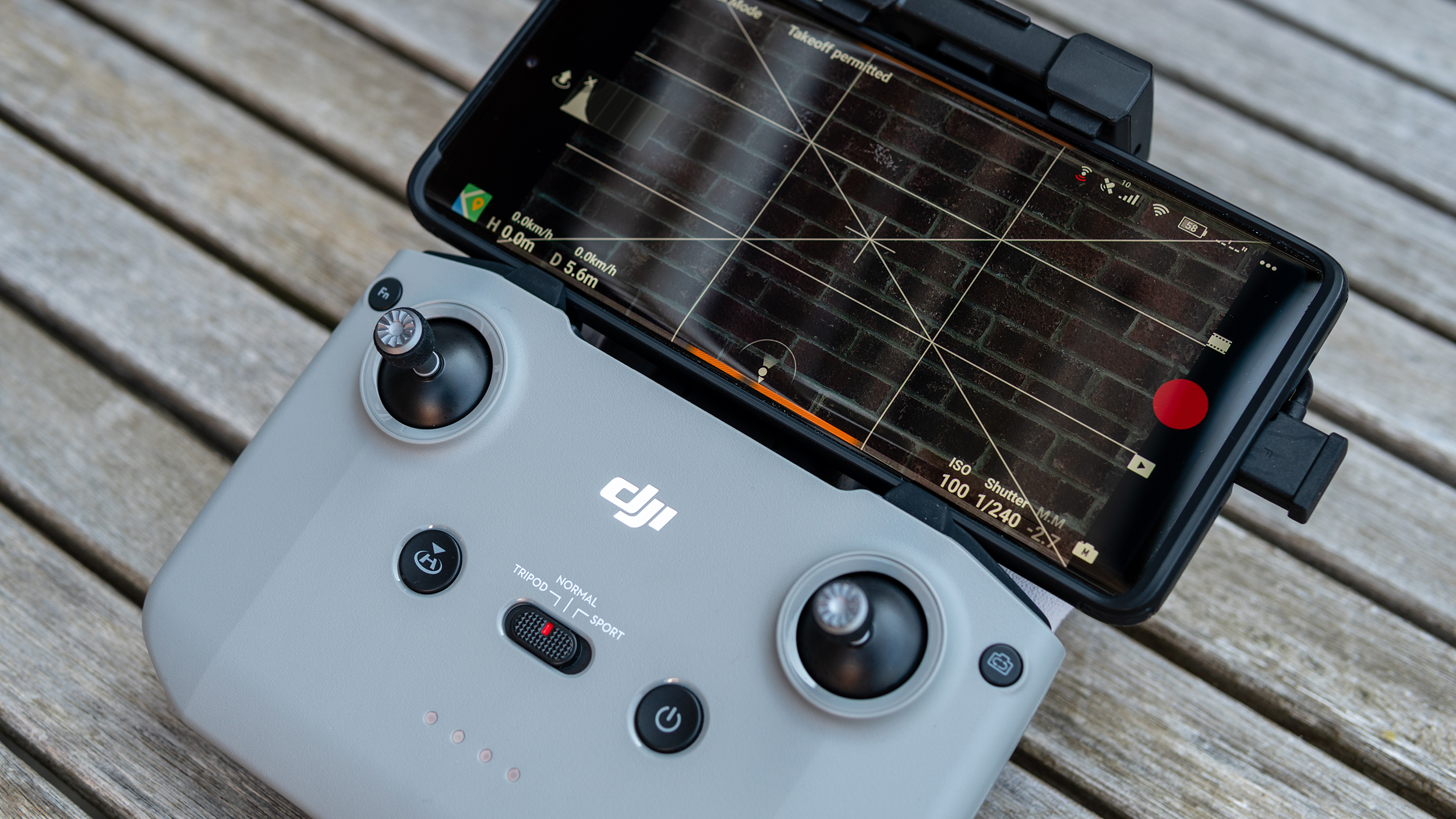
Under control
This improved usability is partly the result of the DJI Mavic Air 2's new controller. In our review we described it as "like a smaller version of the DJI Smart Controller, but without the screen", and went on to praise its design and performance, adding that its "new shape is comfortable to hold, thanks to the contoured grips on the rear and a weight of 393g".
We also found that the controller starts up and connects to the drone quicker than the original Mavic Air's pad. And while the Mavic Air 2 sadly isn't compatible with the excellent DJI Smart Controller right now (DJI told us that it will be in the future, "but we don’t have a timeframe"), its bundled controller does crucially support Ocusync 2.0.
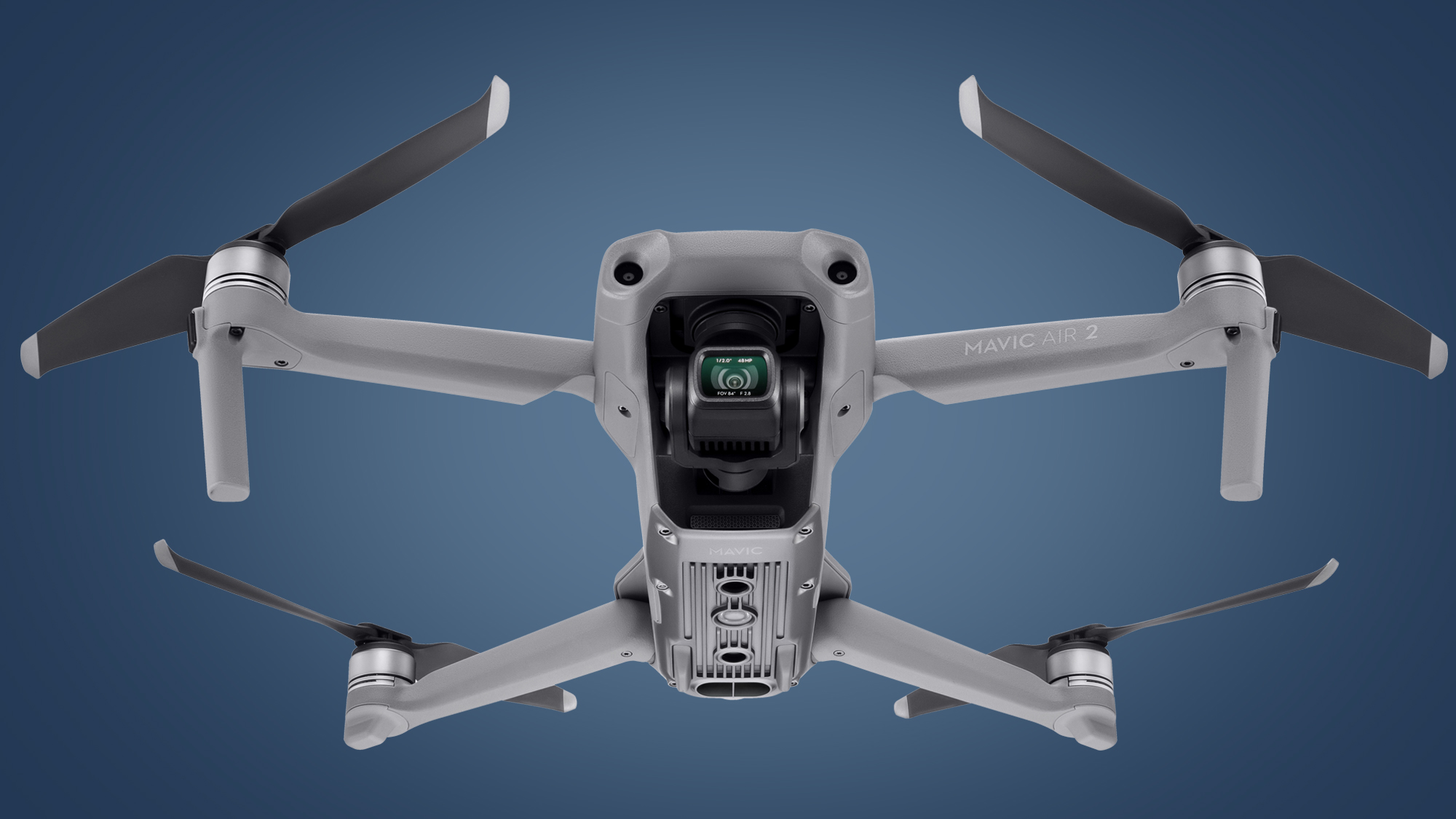
This transmission tech gives the Mavic Air 2 a much greater flying range than its predecessor (10km, compared to the Mavic Air's 4km), and a more reliable signal too. As we say in our review: "OcuSync 2.0 supports 2.4GHz and 5.8GHz frequencies and can switch between the two when necessary. Plus, anti-interference technology blocks unwanted signals."
While the Mavic Air 2 lacks the side sensors found on the Mavic 2 series, it's also packed with safety and shooting features not found on its pricier siblings. These include AirSense – a first for a consumer DJI drone – which lets the drone receive signals from nearby aircraft so that you can get alerts about their whereabouts, plus updated safety features like Advanced Pilot Assistance System (APAS) 3.0 to help the Air 2 automatically fly around obstacles.
When it comes to grabbing aerial footage, you also get new options like HyperLapses and slow-mo 1080p video at 240fps, alongside more familiar QuickShot flight modes like Dronie (a kind of drone selfie) and Asteroid.
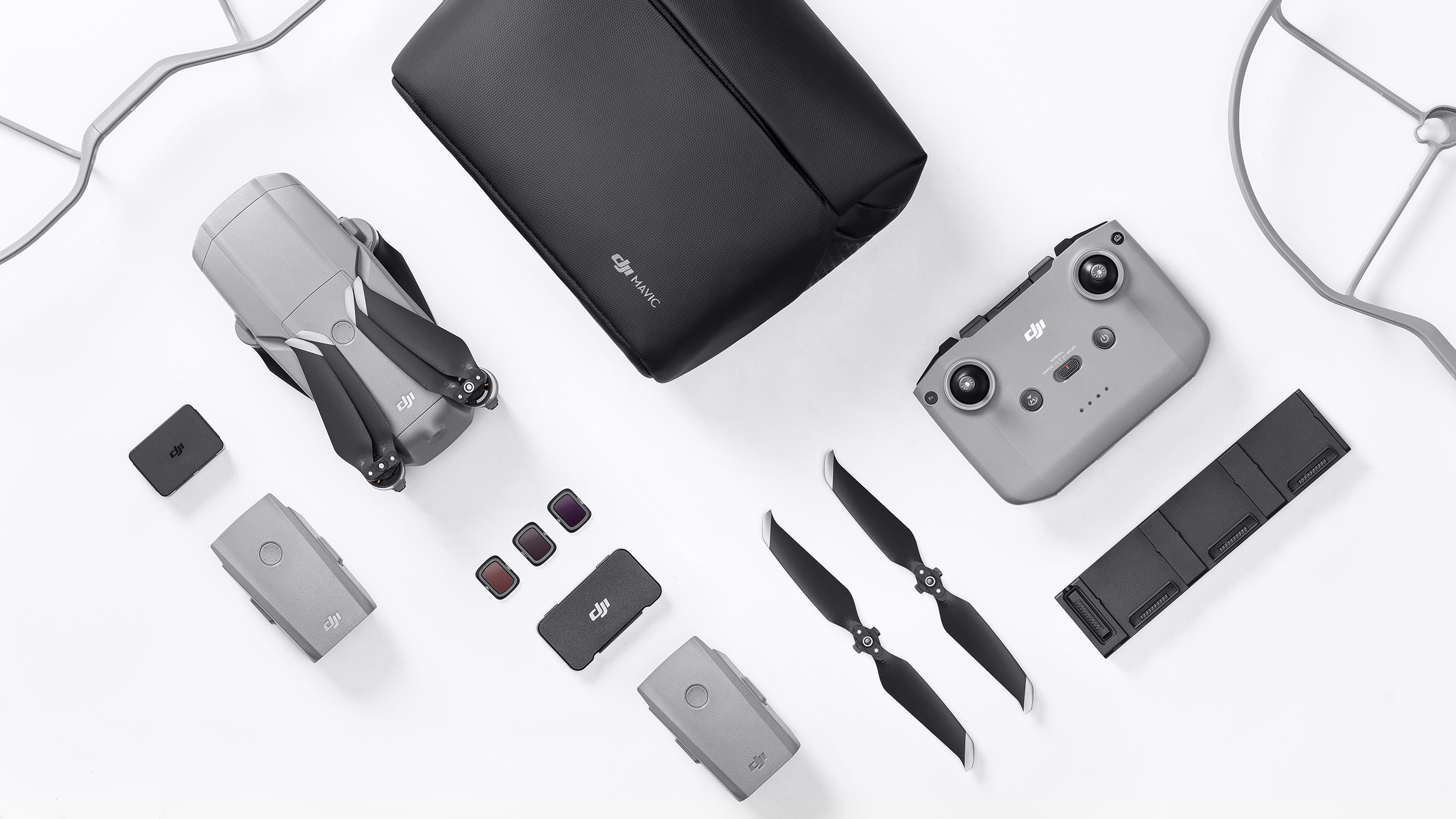
High flyer
Does the DJI Mavic Air 2 have any downsides? Well, nothing to prevent it from getting full marks, though there are some small annoyances. As with its predecessor, the camera feed does sometime stutter, which means it's occasionally difficult to frame your shots. And compared to professional drones, the relatively small sensor does mean image noise can still be an issue at higher ISOs – our review concluded that "ISO 400 is realistically the highest setting you’d want to use".
But aside from these niggles, and the potential need to register the drone depending on where you live, the DJI Mavic Air 2 is a major upgrade on its predecessor, and the best bang-for-your-buck drone you can buy right now.
Of course, the other issue during the current global lockdown is the lack of options for legally flying a Mavic Air 2; hopefully, by the time DJI's pre-orders start shipping (which is expected to be around mid-May) your local restrictions will have been eased, and you'll be free to take it out into the wilds and shoot some spectacular aerial videos.
- These are the best drones you can buy right now

Mark is TechRadar's Senior news editor. Having worked in tech journalism for a ludicrous 17 years, Mark is now attempting to break the world record for the number of camera bags hoarded by one person. He was previously Cameras Editor at both TechRadar and Trusted Reviews, Acting editor on Stuff.tv, as well as Features editor and Reviews editor on Stuff magazine. As a freelancer, he's contributed to titles including The Sunday Times, FourFourTwo and Arena. And in a former life, he also won The Daily Telegraph's Young Sportswriter of the Year. But that was before he discovered the strange joys of getting up at 4am for a photo shoot in London's Square Mile.